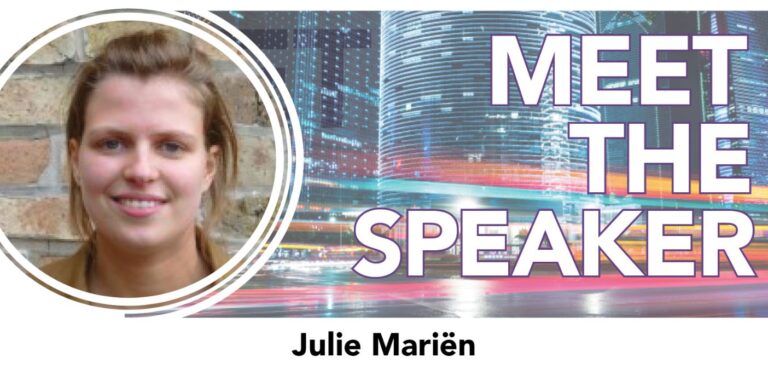With just days to go until Road User Charging Conference 2021, CiTTi meets speaker Julie Mariën, policy officer intelligent transport systems, Flemish department of mobility and public works, who will discuss the Flemish policy on sustainable and smart mobility, illustrated by Flemish use cases.
Taking place on 07-08 September at the Steigenberger Wiltcher’s, Brussels, Road User Charging Conference 2021 provides the latest insight, case studies and debate on current trends and future challenges that affect senior decision makers who have responsibility for intelligent transportation systems and road pricing.
This two-day gathering of leading practitioners welcomes delegates from around the world and across sectors to encourage active discussion and peer-to-peer learning.

Name: Julie Mariën
Job role: Policy officer intelligent transport systems
Organisation: Flemish department of mobility and public works
What is the best thing about your job?
Working on intelligent transport systems means that I am working in an innovative field. For this reason, I keep on learning about new technologies, but also on the challenges on how to introduce those new technologies. That’s why my job will never get boring as technology and societal challenges related to mobility will continue to evolve.
Does legislation help or hinder development in the sector?
It can do both… Ideally, legislation should support developments within the sector and not stand in the way of innovation. The government watches over the interests of society. In order to guarantee these societal interests, the government sets the rules for what is possible and what is not. In this way, the government, like no other, shapes the level playing field in which innovation can take place.
What is the biggest challenge facing those with responsibility for reducing transport emission in 2021?
In my opinion, the biggest challenge for reducing transport emission, is to create a sustainable modal shift. Both in passenger and goods transport. How will we be able to generate a sustainable modal shift in passenger transport if private transport is expected to become more qualitative and more efficient with the introduction of automated vehicles? Clean technology to reduce emissions is very much needed, but so is the modal and mental shift.
What’s your best piece of advice for those looking to implement MaaS solutions?
Listen to all players involved in making MaaS a reality, and try to co-create an open MaaS ecosystem.
How will the business of mobility have changed by 2030?
Looking at the ambitions set out in the European Sustainable and Smart Mobility Strategy, mobility will have changed a lot by 2030. CCAM will become a reality, zero-emission transport will increase, 100 European cities will become climate-neutral.
Why are you looking forward to speaking at Road User Charging Conference 2021?
As for most people, it will be my first real live conference after a period in which we were forced to follow conferences online due to the Covid-19 pandemic. Therefore I’m eager to meet new people and learn more about the best practices of other governments.
At the conference you’ll also be able to hear from Continental, Dublin City Council Smart City Unit, National Road Safety Authority, Viapass… and more! You can view the full agenda here. All times are shown in CEST (GMT+1).
For partnership enquiries, please contact Robert Gouge at robert.gouge@akabomedia.co.uk or by calling +44 (0) 20 8065 0465. For speaking opportunities, please contact Claudia Davidson at claudia.davidson@akabomedia.co.uk or by calling +44 (0) 20 8037 1777.
Meet some of our other speakers at Road User Charging conference 2021…





